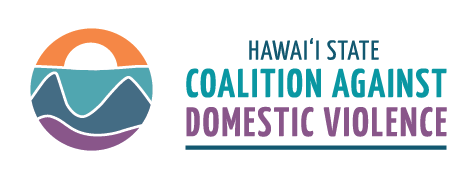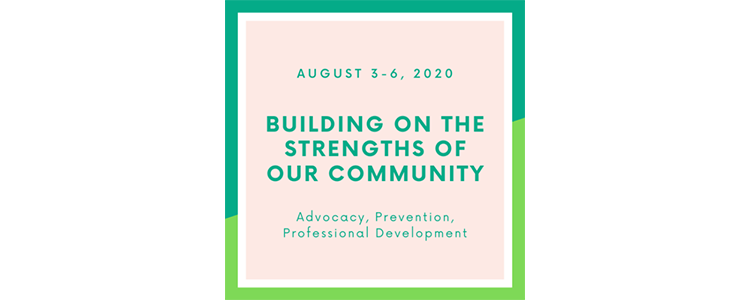WELCOME & KEYNOTE
Arlene Vassell, Anita Momilani Awo & Angelina Mercado – August 3rd, 8:00am-8:50am
HSCADV Executive Director, Angelina Mercado, will start the conference week by welcoming our attendees. Keynote speakers, Arlene Vassell and Anita Momilani Awo, will be our first speakers, highlighting the work of domestic violence programs and discuss how our communities can improve service to survivors.
IDENTIFYING AND RESPONDING TO STALKING
Jennifer Landhuis – August 3rd, 9:00am-10:30am
Victims of stalking often report feeling discounted by the systems designed to assist them. Despite the prevalence of stalking—a crime affecting some 7.5 million people at some time in their lives—allied professionals responsible for interacting with victims of crime are often hampered by lack of training and resources to address the crime of stalking in a comprehensive manner. This workshop will address common tactics used by perpetrators, identify stalking-specific risk assessment tools to better determine the level of threat to victims, and discuss effective safety planning strategies. By the end of this workshop, participants will be better able to:
- Recognize common tactics used by stalkers;
- Conduct stalking-specific risk assessments; and,
- Identify key safety-planning strategies to address these tactics.
BELOVED COMMUNITIES: TRANSFORMING OUR COMMUNITIES FROM THE INSIDE OUT
Arlene Vassell – August 3rd, 11:00am-12:30pm
Prevention begins with healing “us” and continues with our actions – our obligations in individual relationships, our engagement with various organizations, our impact in diverse communities, and our contributions to society. Let’s talk about it…
Participants will have the opportunity to explore, celebrate and honor the power of their own voices and the strength and wisdom available in their communities. Participants will also engage in critical conversations with facilitator about the challenges and barriers for mobilizing and organizing communities to prevent domestic violence and other forms of gender-based violence.
As a result of this training…
- Participants will deepen their understanding about beloved community and how it interconnects with preventing domestic violence
- Participants will enhance their understanding about core components central to meaningful engagement and organizing in their communities
- Participants will identify next steps to continue critical conversations in their community
CRISIS & EMOTIONAL INTELLIGENCE: A FAMILY PERSPECTIVE
Anisa Wiseman – August 4th, 9:00am-10:30am
In this workshop, participants will:
- Learn what crisis intervention means and how it is being applied within our community.
- Identify and learn some coping skills to put into your toolbox.
- Discuss, define, and identify emotional intelligence within themselves and others.
- Learn ways to communicate during a crisis.
BUILDING ON THE STRENGTHS OF US AND OUR TEAMS
Ku’ulani Keohokalole – August 4th, 11:00am-12:30pm
In working with communities, we know that a traditional deficit lens is not helpful. Using positive psychology and a strengths based approach leads to more fulfillment, and stronger capabilities of individuals to gain confidence and reach goals.
- Using an online assessment, participants will become aware of their unique strengths and motivating factors;
- Participants will analyze how to leverage their strengths particularly in tough empathy work;
- Participants will learn how to use a strengths-finding assessment with the people, groups, teams, and organizations they lead to achieve stronger relationships and better outcomes.
THE INTERSECTION BETWEEN HUMAN TRAFFICKING AND DOMESTIC VIOLENCE
Farshad Talebi – August 4th, 1:30pm-3:00pm
This workshop will provide a background into human trafficking and sexual exploitation and discuss why exploited people present like victims of domestic violence. Together we will discuss strategies for a system-wide, multidisciplinary response and the role of service providers in supplementing law enforcement’s efforts.
THE USE OF TECHNOLOGY TO STALK
Jennifer Landhuis – August 5th, 9:00am-10:30am
Approximately 7.5 million individuals are stalked every year in the United States. Rapid advances in technology give stalkers additional tools to locate, surveil, and monitor their victims. This webinar will address common technologies utilized by stalkers, discuss evidence preservation concerns as well as identify effective safety-planning strategies. By the end of this workshop, participants will be better able to:
- Identify common technologies misused by perpetrators, and
- Identify strategies to document stalking and preserve technological evidence.
TRAUMA AND LIVING AT THE INTERSECTIONS: SHIFTING FROM THEORY TO PRACTICE
Arlene Vassell – August 5th, 11:00am-12:30pm
This training will deepen participant’s understanding of the connections between trauma and intersecting issues that impact children and families of color. Trauma is often viewed as an interpersonal experience, but for individuals from traditionally marginalized communities, racism, discrimination and systemic oppression also contribute to trauma. Applying an intersectional approach to our advocacy work means that we, as advocates, are intentional about the ways we think about and view access, power, equality and equity.
The presenter will introduce participants to a trauma-informed advocacy model that integrates an intersectional analysis and approach . This advocacy model is grounded in equity, resilience, connectedness, hope and healing. It provides a framework for creating interventions and programs that are welcoming and inclusive, attuned to the range of individuals’ lived experiences, and relevant to the children and families we serve.
As a result of this training:
- Participants will gain a better understanding of the connections between trauma and intersecting issues that impact children, youth and families from traditionally marginalized communities.
- Participants will explore strategies and promising practices for creating an advocacy model that integrates a trauma –informed and intersectional analysis and approach.
EFFECTIVE SUPERVISORY PRACTICE (PART I); TRANSPARENCY, ACCOUNTABILITY, GROWTH AND REFLECTION (PART II)
Cathy Cave – August 6th, 9:00am-10:30am AND 11:00am-12:30pm
(This is a two-part workshop. Participants must plan on attending both.) Intended for new and experienced supervisors and anyone being supervised by others, this workshop offers a framework to consistently incorporate role clarity, values orientation, cultural and trauma responsiveness, strength-based practice, and reflection a into a supervisory foundation that is focused on growth learning and staff development. Participants will:
- Gain a framework and definitions for the ingredients needed for Effective Supervision.
- Gain resources and strategies to incorporate the ingredients into supervisory processes.
- Practice using the skills and increase their capacities for collaborative supervisory relationships.
REFLECTION HOUR PANEL DISCUSSION
Dr. Marie Vorsino & Matthew Houck – August 6th, 1:00pm-2:00pm
Join Dr. Marie Vorsino, Vice President of Intervention Programs at Parents And Children Together (PACT) and Matthew Houck, Lead Prevention Educator at the YWCA of Kaua‘i in this conversation discussing how service providers are utilizing primary prevention in Hawai’i to combat domestic violence. Learn the challenges and successes of what is being done locally and how they can be applied in your line of work.
ADVOCACY APPRECIATION & MEMBERSHIP MEETING
HSCADV – August 6th, 2:30pm-3:30pm
This will be a virtual get-together of HSCADV member programs and staff as we reflect on the conference and how the events during the last few months made us stronger.


